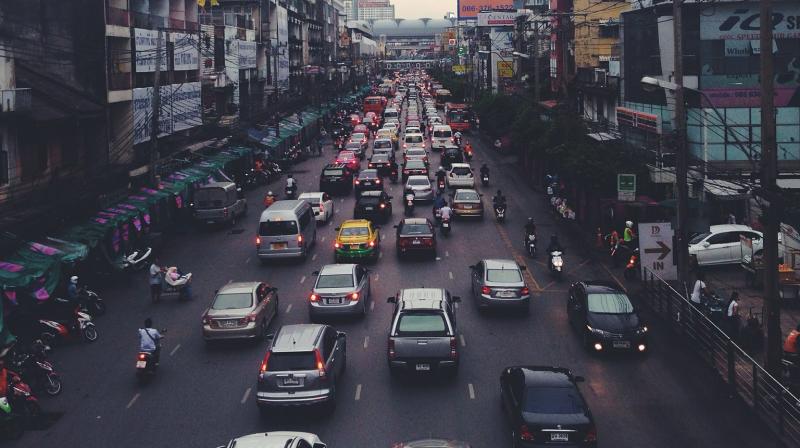Indian tech startups ensuring a smooth, daily commute
Despite spending hundreds of crores on infrastructure likes buses, there is often low utilisation.

For once, the day has begun well. You have listened to the alarm clock, taken a proper bath and even managed to tuck in a good breakfast. But as you ride into the sun, reality, in the form of a bumper-to-bumper traffic jam strikes. Numerous honks, hurls of curses and two dents in the car later, you give up and park your car nearby to complete the rest of the ride in a bus. You arrive at the bus station but as the clock strikes 9, 9.15, 9.20, the bus is nowhere to be seen. After waiting for almost half an hour, the conductor of another bus informs you that the bus you have been waiting for has broken down and wouldn’t be arriving today. You almost feel like breaking down as well!
Urban commuting, or the lack of it, is probably one of the biggest problems cities have to deal with today. The three main challenges facing urban commuting are:-
Lack of relevant & real-time information: The dichotomy of public transportation in India is that despite spending hundreds of crores on infrastructure likes buses, there is often low utilisation because commuters do not have enough information which creates a disincentive to utilise these facilities. In recent years under the JNNURM scheme, the quality of city buses has become truly world class. The need of the hour is to combine this with an equally competent information system that provides complete information on the public transport system. This should include the expected & current arrival as well as departure timings, the present reason for delay, routes taken by the vehicle, ticket prices etc. With time, detailed information such as number of seats available in the vehicle can also be incorporated.
Limited organised commuting options-Different commuters have different needs when travelling and they choose between – cost, time, distance, comfort, safety, privacy etc. Just public service buses or the few cities in which the facility of metros or local trains is available, do not solve all the needs of commuters. As a result cities languish in a labyrinth of shared rickshaws, taxis and infrequent private buses resulting in inconvenience and higher costs to the customer. Every city looking to develop its urban commuting system should promote additional, organised modes of commuting.
Poor planning of traffic infrastructure: Absence of data often leads to a wrongly planned transportation infrastructure. For instance, a road which sees greater volume of traffic and congestion should have lesser traffic signals while those which are prone to speeding should have traffic lights in higher frequency. Absence of any kind of systematic last mile connectivity option leads to higher congestion of unorganised vehicles nearing these areas, creating utter chaos in the process.
How start-ups can help
Several start-ups today are leveraging technology to address these problems. Uber and Ola have established that shared infrastructure in terms of cabs can significantly change the need for private car ownership. Similarly, by creating an information platform that provides relevant, complete, real-time data regarding empty parking spaces or empty seats in vehicles plying on a route, start-ups can ensure that commuters have plenty of options to choose from and vehicle spaces are optimally utilised.
Some start-ups have also revolutionised the urban commuting space by generating precise information regarding the public transit infrastructure. Real-time alerts on buses arrival, multi-modal route planning, instantly available information on routes and fares are empowering commuters to once again have the confidence to travel by public transport. Furthermore, start-ups can help in introducing mobile tickets for city buses and integrating transactions for multiple modes of transport akin to the very popular, Octopus smart card in Hong Kong or Oyster card in London.
The daily struggle in crowded metros, late buses or haggling with autorickshaws is a big drain on the energy of an individual. Smooth urban commuting is essential for an energetic and driven workforce as well as for a populace that’s at peace and enjoys a good quality of life.
— by Nikhil Aggarwal, COO and Co-Founder, Zophop.

